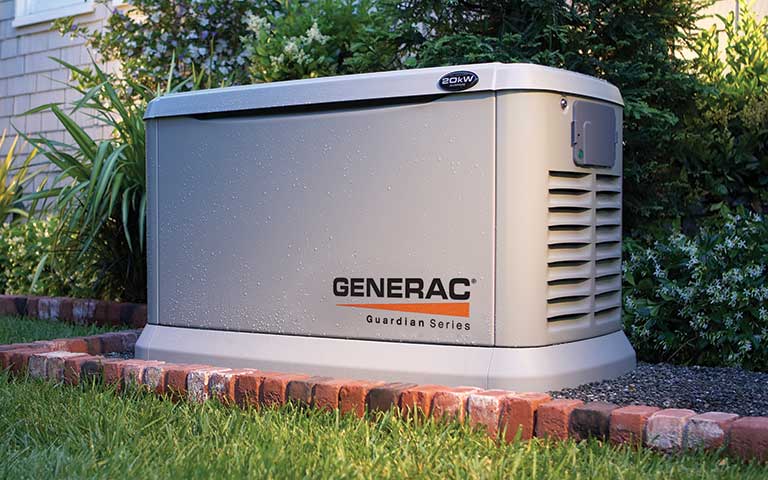Can I use an Extension Cord with my Portable Generator?
Portable generators are a great way to provide power during power outages, camping trips, and other outdoor activities. One of the questions that often comes up when using a portable generator is: can I use an extension cord with my portable generator? The answer is yes, but there are a few important things to keep in mind.
Safety First: Using the Right Extension Cord
When using an extension cord with your portable generator, safety should be your top priority. The first thing to consider is the type of extension cord you’re using. Make sure the extension cord is rated for outdoor use and is suitable for the wattage and amperage of your generator.
For example, if you have a 4,000-watt generator, you’ll need an extension cord that can handle at least 33.3 amps. A 12-gauge wire extension cord would be suitable for loads up to 15 amps, and a 10-gauge wire extension cord would be suitable for loads up to 30 amps.
Minimizing Voltage Drop
Another important factor to consider when using an extension cord with your portable generator is voltage drop. Voltage drop is the decrease in voltage that occurs as electricity travels through a wire. The longer the extension cord, the more voltage drop there will be.
To minimize voltage drop, it’s important to keep the length of the extension cord as short as possible. For example, if you have a 4,000-watt generator and you need to power a refrigerator that’s 50 feet away, it’s best to use a 50-foot extension cord that’s rated for at least 33.3 amps.
Protecting the Extension Cord from the Elements
When using an extension cord with your portable generator, it’s important to protect the cord from the elements. This means keeping the cord dry and out of the way of rain, snow, and other precipitation.
It’s also important to make sure the cord is not in contact with any flammable materials or liquids. For example, if you’re using your portable generator at a construction site, make sure the extension cord is not in contact with any gasoline, oil, or other flammable liquids.
Keeping the Generator in a Well-Ventilated Area
Finally, it’s important to make sure the generator is placed in a well-ventilated area. This is especially important if you’re using an extension cord to power appliances and tools inside a building.
Portable generators produce carbon monoxide, an odorless and colorless gas that can be fatal if inhaled in high concentrations. By placing the generator in a well-ventilated area, you’ll help to prevent carbon monoxide buildup and reduce the risk of poisoning.
Examples of Using an Extension Code with a Portable Generator
Let us look at some use cases for using an extension cord with a portable generator
- Camping: You’re camping in the woods and you have a small portable generator that you’re using to power a few lights and charge your phone and other small devices. You can use a 12-gauge wire extension cord that’s rated for outdoor use and is suitable for the wattage and amperage of your generator. Keep the cord as short as possible, protect it from the elements, and make sure the generator is placed in a well-ventilated area.
- Power Outage: You’ve experienced a power outage and you’re using your portable generator to power your refrigerator, lights, and other essential appliances. You can use a 10-gauge wire extension cord that’s rated for outdoor use and is suitable for the wattage and amperage of your generator. Keep the cord as short as possible, protect it from the elements, and make sure the generator is placed in a well-ventilated area
- Construction Site: You’re working on a construction site and you need to power a few tools, such as a saw and a drill. You’re using a large portable generator and you need a long extension cord to reach the area where you’re working. You can use a 10-gauge wire extension cord that’s rated for outdoor use and is suitable for the wattage and amperage of your generator. Make sure the cord is protected from the elements and any flammable materials, and keep the generator in a well-ventilated area.
- Tailgating: You’re tailgating at a football game and you need to power a portable grill, a few lights, and a small sound system. You can use a 12-gauge wire extension cord that’s rated for outdoor use and is suitable for the wattage and amperage of your generator. Keep the cord as short as possible, protect it from the elements, and make sure the generator is placed in a well-ventilated area.
| Situation | Extension Cord Type | Minimum Gauge | Cord Length | Generator Placement |
|---|---|---|---|---|
| Camping | Outdoor rated | 12-gauge | Short | Well-ventilated area |
| Power Outage | Outdoor rated | 10-gauge | Short | Well-ventilated area |
| Construction Site | Outdoor rated | 10-gauge | Long | Well-ventilated area |
| Tailgating | Outdoor rated | 12-gauge | Short | Well-ventilated area |
Conclusion
Using an extension cord with your portable generator can be a great way to provide power to appliances and tools that are located farther away. However, it’s important to keep safety in mind and use the right extension cord, minimize voltage drop, protect the cord from the elements, and keep the generator in a well-ventilated area. Always refer to the manufacturer’s specifications for the most accurate information on wattage and amperage requirements, and be mindful of the length of the cord and the environment it is being used in.


